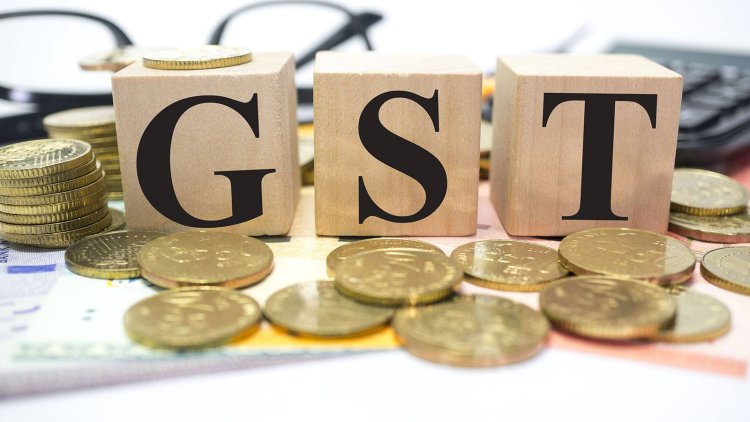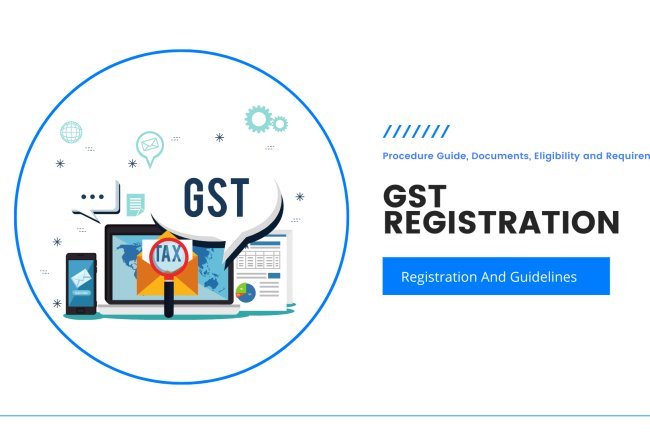Is a GST course the right career choice?
A GST course is a good career move, teaching people how to work with India's Goods and Services Tax system. GST is the backbone of India's economy, businesses need skilled people to handle tasks like signing up, filing returns, following rules, and checking accounts. A GST course will improve job chances for employment as a GST consultant, tax analyst, or Accounts manager. It also goes well with other accounting classes like Tally and General Accounting, making you a strong professional. You will learn skills such as tax collection, managing input tax credits, filing GST, and getting hands-on training with tools like Tally and GSTN. By joining this knowledge with an understanding of tax laws, it will help in the improvement of career growth, with a per-month salary of ₹3-4 lakh for beginners, to ₹8-12 lakh for the ones with experience. It has fantastic career advantages, which makes the subject very popular among finance workers.

Learning GST gives professionals a great career boost and makes them valuable to businesses that need to follow tax rules and grow because, In today’s rapidly changing economy, the Goods and Services Tax (GST) plays a key role in India’s tax system. This article explains the benefits of taking a GST course, what the course covers, and how combining it with other courses like Tally, Taxation, and Accounting can help you succeed even more.
Definition of GST in India:
Goods and Services Tax (GST) is a special tax that is added when people buy things or services in India. Before GST, there were many different types of taxes, like excise duty and VAT, that made things complicated. But on July 1, 2017, GST was introduced to make it simpler. Now, there's just one tax for everything! The main goal of GST is to make it easier for businesses and people to understand and pay taxes, and to stop the same tax from being added again and again, which makes things cheaper for everyone.
About GST Course
A GST course is designed to provide in-depth knowledge of India’s Goods and Services Tax system. This includes understanding GST registration, return filing, compliance, and reconciliation processes. Whether you’re an aspiring accountant, a business owner, or a working professional, a GST course will help you with the expertise to navigate the complexities of indirect taxation efficiently.
These courses include practical modules such as:
⦁ GST implementation in software like Tally.
⦁ Step-by-step filing of GSTR forms.
⦁ Tax computation and input tax credit management.
⦁ GST audits and e-way bill processes.
Career Advantages of a GST Course
The professional Course in India offers many opportunities for GST-trained individuals. Here are some career advantages:
1. Enhanced Employability
A GST course helps you learn important skills that make you a great choice for jobs in accounting, taxes, and following the rules. GST is important for businesses so companies need people who know about GST.
2. High Demand Across Sectors
GST is applicable to businesses of all sizes and industries. GST is used by so many businesses, and there is always a need for people who know how to work with it. This includes jobs in places like stores, factories, online shopping, and delivery companies.
3. Career Growth Opportunities
GST expertise opens doors to roles like:
⦁ GST Consultant
⦁ Tax Analyst
⦁ Accounts Manager
⦁ Compliance Specialist
Professionals in these roles enjoy substantial growth potential, both in terms of responsibility and remuneration.
4. Entrepreneurial Benefits
For aspiring entrepreneurs, knowledge about GST is important. It empowers them to handle their business compliance independently, minimizing reliance on external consultants.
5. Global Applicability
GST principles align with international indirect taxation frameworks. This makes professionals skilled in GST well-suited for roles in multinational companies.
How a GST Course Complements Other Accounting Courses
To maximize the benefits of a GST course, pair it with related courses like Tally and Accounting. A Tally course helps you manage GST tasks, such as generating invoices and filing returns, while an Accounting course builds your understanding of financial statements and basic principles. Together, these courses equip you with a strong, in-demand skill set for GST, accounting, tax planning, and financial management, making you a valuable asset to any company.
Skills Gained After Completing a GST Course
⦁ Understanding Levy & Tax Collection: Gain expertise in how taxes are imposed and collected under GST regulations.
⦁ Mastery of Time & Place of Supply: Learn to determine when and where GST liability arises.
⦁ Valuation Techniques: Acquire skills to calculate the taxable value of goods and services.
⦁ Input Tax Credit Management: Understand how to claim and utilize input tax credits effectively.
⦁ Tax Payment Process: Get proficient in the step-by-step GST payment procedure.
⦁ Filing GST Returns: Learn to prepare and file accurate GST returns.
⦁ Applying GST in Tally: Develop hands-on skills for managing GST transactions in Tally.
⦁ Practical Training on GSTN: Practice GST compliance and filing using the GSTN portal.
Steps to Build a Career in GST
If you want to become an expert in GST, here is a roadmap :
1. Enroll in a Comprehensive GST Course
Look for courses that offer both theoretical and practical training. Ensure the curriculum covers GST filing, reconciliation, and audit processes.
2. Master Tally and Accounting Tools
Complement your GST training with software proficiency through a Tally Course. Additionally, enhance your knowledge with an accounting course for broader expertise.
3. Stay Updated with Taxation Changes
GST is a dynamic field with frequent regulatory updates. Enrolling in a Taxation Course ensures you remain informed about these changes.
4. Obtain Certification
Certifications from recognized institutes add credibility to your resume and improve employability.
5. Gain Practical Experience
Internships or entry-level roles in accounting firms or businesses provide hands-on exposure to GST compliance.
Key Takeaways from a GST Course
1. Practical Knowledge: GST courses emphasize real-world applications, from filing GSTR forms to conducting audits.
2. Analytical Skills: Understanding GST compliance sharpens problem-solving and analytical abilities.
3. Compliance Expertise: You’ll gain the ability to ensure a business’s compliance with GST regulations, avoiding penalties.
Job Roles and Salaries Post-GST Course
⦁ Completing a GST course, you can explore roles such as:
⦁ GST Practitioner: Help businesses with GST registration and filing.
⦁ Accountant: Manage a company’s financial records and tax compliance.
⦁ Tax Consultant: Provide advisory services on tax-saving strategies.
In terms of remuneration, entry-level professionals can earn between ₹3-4 lakh per annum, while experienced consultants and compliance specialists can command ₹8-12 lakh per annum or more.
Conclusion
If you're looking for a career in finance or accounting, a GST course is definitely a good choice. It equips you with essential skills, boosts your employability, and helps you stay updated in the competitive job market.
What's Your Reaction?















